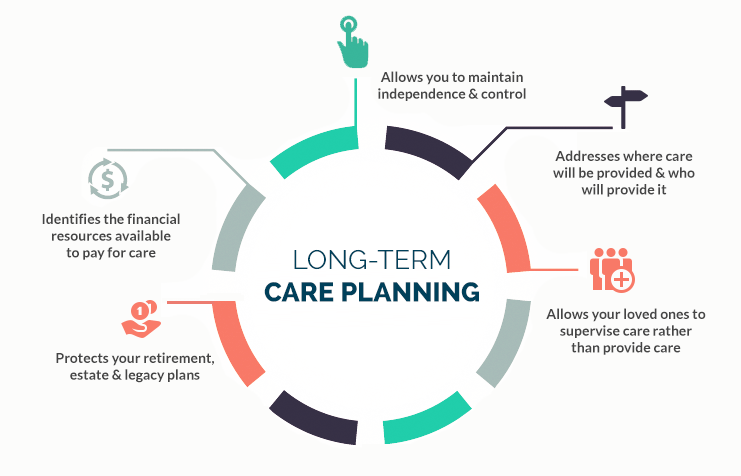As people age, they often need extra help. They may no longer be able to do some things and must call someone to help. This situation may be temporary, such as following an illness or injury, or it could last much longer. Many people find they need long-term care, and they must pay for it. How can a person plan for long-term care as they age?
Looking to the Future
Many people dream of moving to a 55+ community. They envision a life where they have free time and can spend it doing things they love with friends. They find they can’t do these things when they need long-term care and haven’t planned for the costs. They barely have money for regular expenses, much less extras.
According to the United States Department of Health and Human Services, 70 percent of individuals turning 65 today will need long-term care in the future. Twenty percent will require this care for a minimum of five years. The type of care varies, but the costs quickly add up. Planning for this care is essential.
Paying for Long-Term Care
People have several ways to pay for this long-term care. Retirement savings are often used for this purpose, or a person might use their life insurance, health savings account, or annuities to cover this care. Long-term care insurance is something every person should invest in.
The policy typically pays a specified amount each day for this care for a predetermined period. However, this insurance must be purchased in advance. There is an elimination period where the person pays premiums before the policy begins paying out. In many cases, a person must wait 90 days after purchasing a policy for it to cover services. These policies often have a maximum amount they will pay out or a set number of days to pay for care.
Permanent life insurance is another option for paying for long-term care. These policies continue covering a person until they stop paying the premiums, and they may offer living benefits. A person can cash out their policy to cover their long-term care, but doing so reduces the amount paid out to heirs when they die. Another option is to sell the policy for cash, but there may be tax implications, or the amount may be significantly lower than the death benefit.
Hybrid life insurance combines long-term care coverage with permanent life insurance. This option is similar to withdrawing funds from a permanent life insurance policy but has a higher price tag. In addition, the policy may not cover certain types of care, so individuals must read the fine print carefully.
Long-term care annuities are deferred annuities that provide a guaranteed income stream in exchange for a lump sum or multiple premium payments. The funds are divided between long-term care expenses and regular income payments. Long-term care payments are higher than regular payments but are provided for a limited period. The initial premium can be costly, and there is a waiting period before funds are dispersed. Withdrawing early leads to high penalties.
Health savings accounts can cover long-term care costs and are excellent for those with high-deductible health plans. However, additional restrictions exist. Medicare recipients cannot access this option. The government limits the amount a person can contribute to an account, but employers may help individuals fund these accounts. The individual funds the account with pre-tax dollars, and the funds grow tax deferred. If they are used for qualified medical expenses, there are no taxes when the funds are withdrawn. The account owner must meet certain criteria before the funds can be used for long-term care.
Individuals who haven’t planned for long-term care must cover the costs independently. They may be taxed on the funds they use for this purpose. Retirement accounts are often used for this purpose, and many seniors rely on Medicaid to pay for their care. All options must be considered to ensure every senior receives the care they need.

